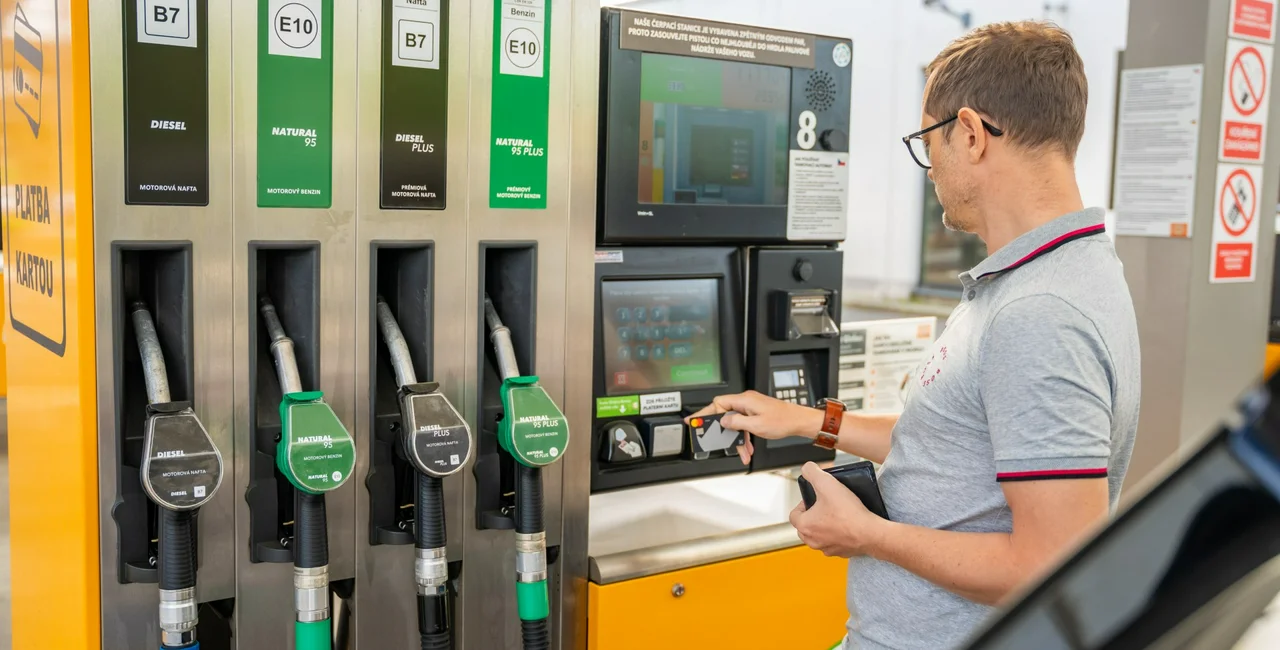New figures from the Czech Company for Payment Cards (CCS), which tracks fuel prices, show the average price of gasoline fell to CZK 33.97 per liter last week—the lowest since September 2021. Diesel is now averaging CZK 32.67 per liter, a level not seen since July 2023.
How much have prices dropped by?
Analysts say the decline is part of a steady downward trend that began earlier this year and is expected to continue in the coming weeks.
Compared to this time last year, drivers are paying over CZK 6 less per liter for gasoline and nearly CZK 5.80 less for diesel, CCS data shows. It’s a welcome relief for motorists, especially with the summer travel season approaching.
Where can you find the cheapest fuel nationwide?
If you're filling up in the South Bohemian region, you’ll find the lowest petrol prices — averaging CZK 33.46 per liter. Diesel is cheapest in the Hradec Králové region, at CZK 32.09.
Meanwhile, Prague remains the most expensive place to refuel, with petrol averaging CZK 35.48 and diesel at CZK 34.65 per liter.
What’s behind the decline?
Two big factors are driving the price fall: cheaper oil and a stronger Czech crown. Brent crude prices have plunged about 10 percent over the last two weeks, and on Monday, the price per barrel fell below CZK 1,300—a level not seen since early 2021.
“The drop in oil prices from late April to early May hasn’t fully reached gas stations yet,” said Jiří Tyleček, analyst at XTB. “Refinery margins are still high, so there’s room for prices to fall further,” he added.
Another key factor is the OPEC+ decision to boost oil production by over 400,000 barrels a day starting next month. That’s expected to increase global supply—and bring down prices even more. Analysts say political pressure from the U.S. ahead of President Trump’s planned Middle East visit may have influenced the move.
How might prices develop in 2025?
While current trends point to further price drops, the future of fuel costs in Czechia remains tied to a mix of global and domestic forces.
In the short term, analysts expect prices at the pump to continue falling. If oil prices remain low and the Czech crown holds firm against the U.S. dollar, fuel costs could slide even more.
However, several factors could stall or reverse the decline. Geopolitical tensions—particularly in the Middle East—remain a looming risk. The region’s instability, including potential escalation between Israel and Iran, could send oil prices spiking again. Additionally, if the crown weakens or excise taxes are adjusted upward, domestic prices could climb regardless of global trends.
“We’re in a different economic climate now,” Petr Lajsek of finance firm Purple Trading said. “Inflation and post-Covid-19 demand have changed the landscape,” he added.













 Reading time: 2 minutes
Reading time: 2 minutes 
























